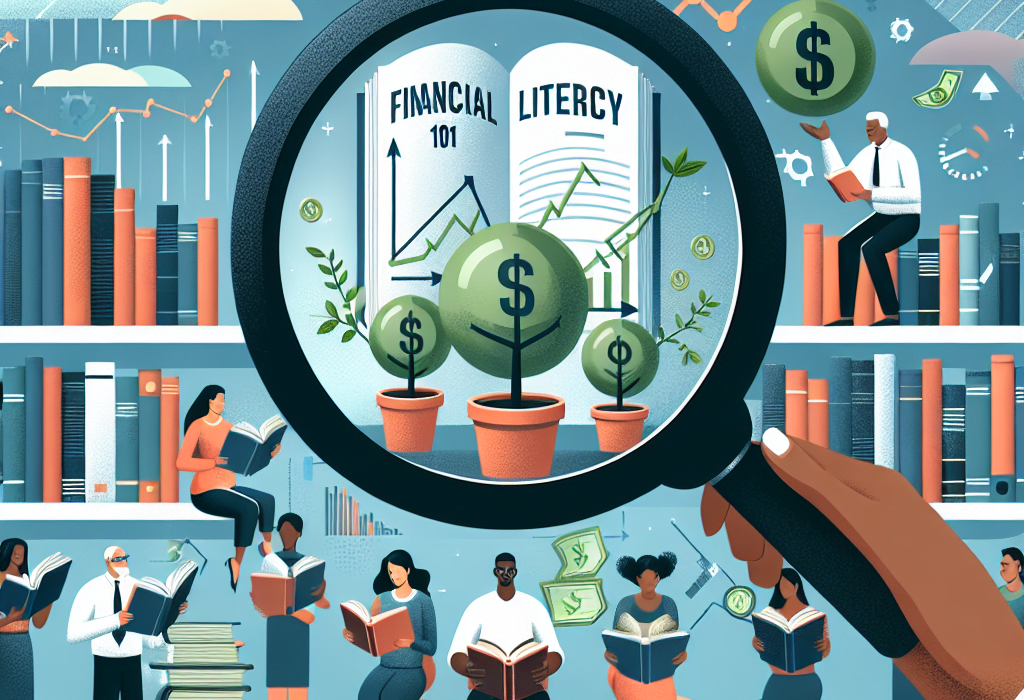Financial literacy refers to the understanding of various financial areas such as personal finance management, investing, and planning for the future. In today’s fast-paced world, it is essential for individuals to have a solid grasp of these concepts to empower themselves economically and lead a financially secure life. This article discusses the importance of financial literacy resources in empowering individuals, detailing the essential resources that can be utilized and the various ways they can impact one’s financial life.
Understanding the Importance of Financial Literacy
Financial literacy is one of the key ingredients to achieving economic stability and success. Without a basic understanding of personal finance, people may find themselves prone to making poor financial decisions, leading to debt issues, insufficient funds for retirement, or other economic problems. Financial literacy equips individuals with the knowledge to make informed decisions regarding their money—decisions that lead to long-term financial health.
Moreover, financial literacy promotes independence and self-confidence, empowering individuals to take control of their financial future. It aids in understanding how money works, how it is earned, managed, invested, and saved, encouraging effective money management skills.
Essential Financial Literacy Resources
Multiple resources can aid individuals in becoming financially literate. Let’s discuss a few essential ones.
Books
There is a wealth of written material available on financial literacy. Books authored by financial gurus offer practical advice and strategies for attaining financial freedom. Some popular titles include “Rich Dad Poor Dad” by Robert Kiyosaki and “The Total Money Makeover” by Dave Ramsey.
Online Courses
There are many online platforms offering courses on financial literacy. Websites like Coursera, Udemy, and even universities like Harvard and Yale provide free or paid courses on personal finance, investing, and other related topics.
Apps
Several financial literacy apps offer easy and accessible routes to financial education. These include Mint for budgeting, Robinhood for investing, and YNAB (You Need a Budget) for comprehensive personal finance management.
Podcasts and Blogs
Podcasts and blogs are a great way to absorb financial literacy knowledge while on the go. They cover a wide range of topics, from basic budgeting to stock market investing.
Impact of Financial Literacy Resources
Financial literacy resources have a sizable impact on individuals. They provide the knowledge required to make informed financial decisions, promote monetary stability, and reduce financial crisis risk. Moreover, these resources boost financial confidence, foster economic independence, and increase the chances of monetary success.
Resources like books, online courses, kinds of podcasts and blogs provide practical advice, inspire new ways of thinking about money, and provide a roadmap to financial freedom. Financial literacy apps make managing finances less daunting, providing tools to keep track of spending, savings, and investment.
Financial literacy helps individuals save wisely, avoid unnecessary debt, and grow their wealth. By understanding financial management principles, they can better face unexpected financial challenges, secure their future and contribute significantly to the economy.
Conclusion
Financial literacy is a crucial skill that directly impacts a person’s economic stability and prosperity. Through financial literacy resources such as books, online courses, apps, podcasts, and blogs, individuals can empower themselves, make informed financial decisions, and take control of their financial destiny. Furthermore, financial literacy is a stepping stone to creating a culture of financial responsibility and independence.
1. What is financial literacy?
Financial literacy is the understanding of how money works: how someone manages to earn or make it, how that person manages it, how he/she invests it to make profits, and how that person donates it to help others.
2. Why is financial literacy important?
Financial literacy is essential for making informed decisions about financial matters. It enables people to manage their money efficiently, avoid debt, save for the future and attain financial stability.
3. What are some good resources to achieve financial literacy?
Some valuable resources for achieving financial literacy include financial books, online courses, financial literacy apps, and financial education podcasts and blogs.
4. How can financial literacy impact my life?
Financial literacy can give you the ability to make informed decisions about your money. It can help you manage your money effectively, save for the future, avoid unnecessary debt, and achieve financial stability and independence.
5. Are there any apps that can help improve financial literacy?
Yes, several apps help improve financial literacy. Some of the popular ones include Mint for budgeting, Robinhood for investing, and YNAB (You Need a Budget) for comprehensive personal finance management.













